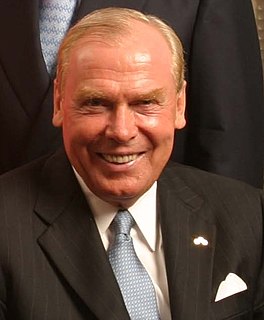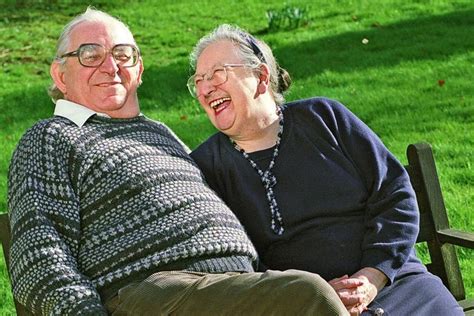A Quote by Paramahansa Yogananda
Another qualification of success is that we not only bring harmonious and beneficial results to ourselves, but also share those benefits with others.
Related Quotes
Tragedy was foresworn, in ritual denial of the ripe knowledge that we are drawing away from one another, that we share only one thing, share the fear of belonging to another, or to others, or to God; love or money, tender equated in advertising and the world, where only money is currency, and under dead trees and brittle ornaments prehensile hands exchange forgeries of what the heart dare not surrender.
A psychologist once asked a group of college students to jot down, in thirty seconds, the initials of the people they disliked. Some of the students taking the test could think of only one person. Others listed as many as fourteen. The interesting fact that came out of this bit of research was this: Those who disliked the largest number were themselves the most widely disliked. When we find ourselves continually disliking others, we ought to bring ourselves up short and ask ourselves the question: "What is wrong with me."
Student loans have been helpful to many. But they offer neither incentive nor assistance to those students who, by reason of family or other obligations, are unable or unwilling to go deeper into debt. ... It is, moreover, only prudent economic and social policy for the public to share part of the costs of the long period of higher education for those whose development is essential to our national economic and social well-being. All of us share in the benefits - all should share in the costs.
When I was working on my Ph.D., I developed a computer algorithm to look for rapid changes in populations' DNA. Our DNA changes constantly over generations, but if certain changes spread through a population more quickly than others, they are probably the beneficial results of natural selection. This is the protection we give ourselves to survive.
I kind of pride myself on coming onto things that are well-oiled machines and finding a way to bring what I bring and fit in, and raise it to another level if I can. And this [Code Black ] has been another one of those really fun success stories, much like Parks And Recreation, although obviously on the other side of the comedy/drama equation.










































